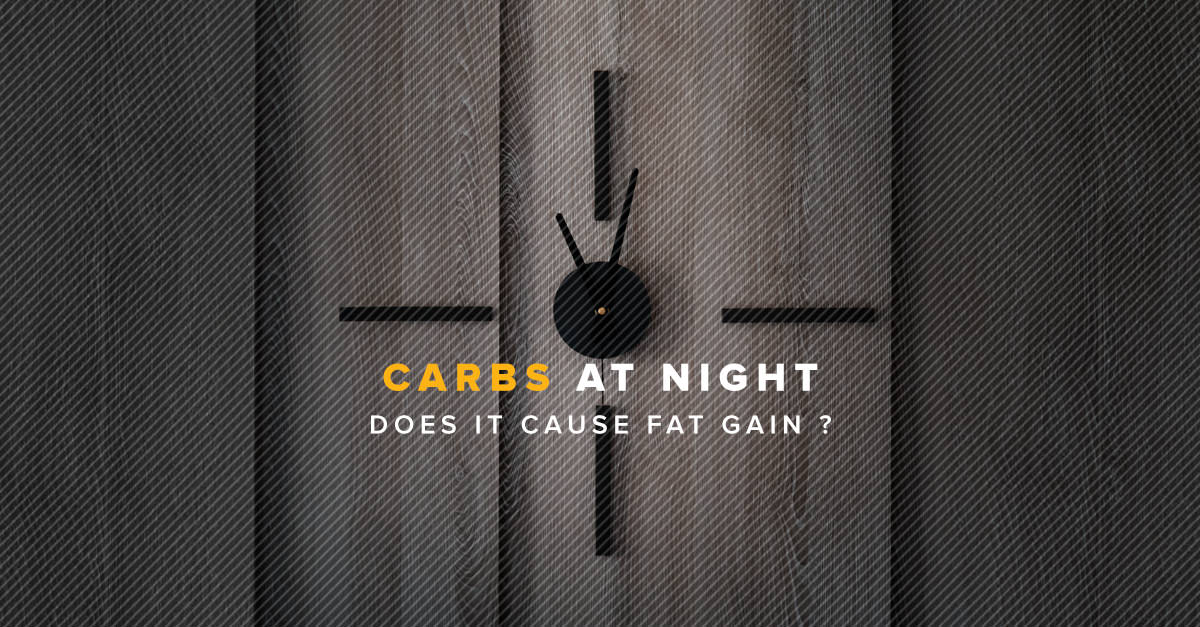The role carbs play are often misunderstood in regards to how it changes our body composition. I shake my head every time I hear a personal trainer give misinformed advice about the significance of eating carbohydrates at night. The reduction of your overall calories by eating less carbs is the main contributing factor to your physique changing. The timing of your carb consumption plays a much smaller role in fat-loss/gain than you might think.
Myth – Eating carbs at night makes you fat
The myth suggests that it’s harder to use carbs as fuel at night because your metabolism slows down when you sleep. So any carbs that you do eat late in the evening will simply be converted to body fat.
The science
Our body uses energy in a variety of ways. Our resting metabolic rate (RMR) is the energy needed to make sure everything functions properly internally. About half of all daily energy expenditure is for our RMR. Our RMR still uses up a lot of calories whether or not we are active.
The energy we use for exercise is called the exercise activity thermogenesis (EAT). The energy we expend for all other physical activity is called our non-exercise activity thermogenesis (NEAT). Energy is also expended on the thermic effect of food (TEF) but in smaller quantities than the other processes. Protein has the highest TEF so that’s one of the reasons why higher protein diets are great during a fat-loss phase.
Dispelling the myth
The myth suggests that our RMR would decrease when we sleep because our expenditure is lower than during the day. We won’t be exercising or doing any other activity when we’re sleeping (unless you sleepwalk!) so our EAT and NEAT do not need to be considered in depth here. Studies have found that our RMR is not significantly different when we sleep than during the day. This would mean that eating carbs at night will not cause an increase of fat gain compared to if you eat those same carbs throughout the day. The main cause of body composition changes is the total daily caloric intake. Staying in a daily calorie deficit (eating less than your maintenance calories) will result in fat-loss over time regardless of the timing of your carb consumption. On the flip side, if you eat in a calorie surplus you will still gain weight even if you refrain from eating carbs at night.
This may surprise you but dietary carbs are not easily converted to body fat. They are used as glycogen in our muscles, liver, and are our primary source of energy. Carbs can contribute to fat gain by suppressing fat oxidation when we eat in a surplus. We are then less likely to use our existing fat stores as energy and we then store the dietary fat we consume as body fat. This only becomes an issue if we overeat.
When it comes to fat-loss and meal timings you want to choose a method that helps you stick to your calorie and macro nutrient targets the most. I personally like to eat 5 smaller meals a day amounting to my total caloric needs. I find this suppresses my appetite the most effectively. If you don’t feel hungry in the morning but usually get hungrier as the day wears on, you might want to consider fasting in the AM and then saving your calories for later in the day. This way you can eat larger meals without exceeding your daily food target. Your body is not a fat storage machine at night so there’s no need to treat it like one!
Read up on our previous blogs here
Written by Coach Rishi Haria

